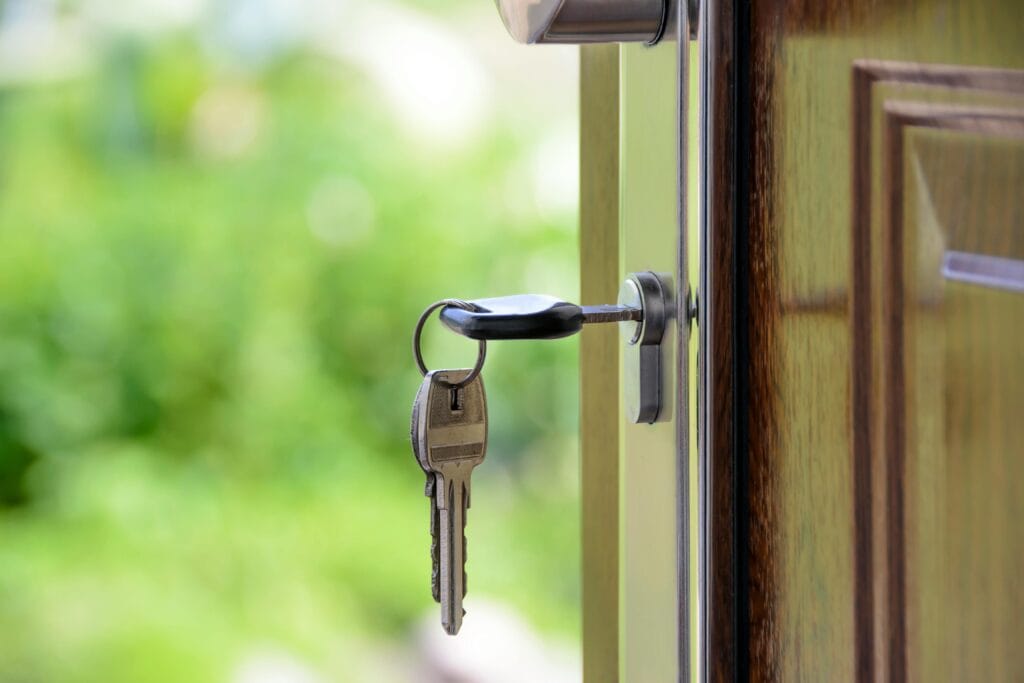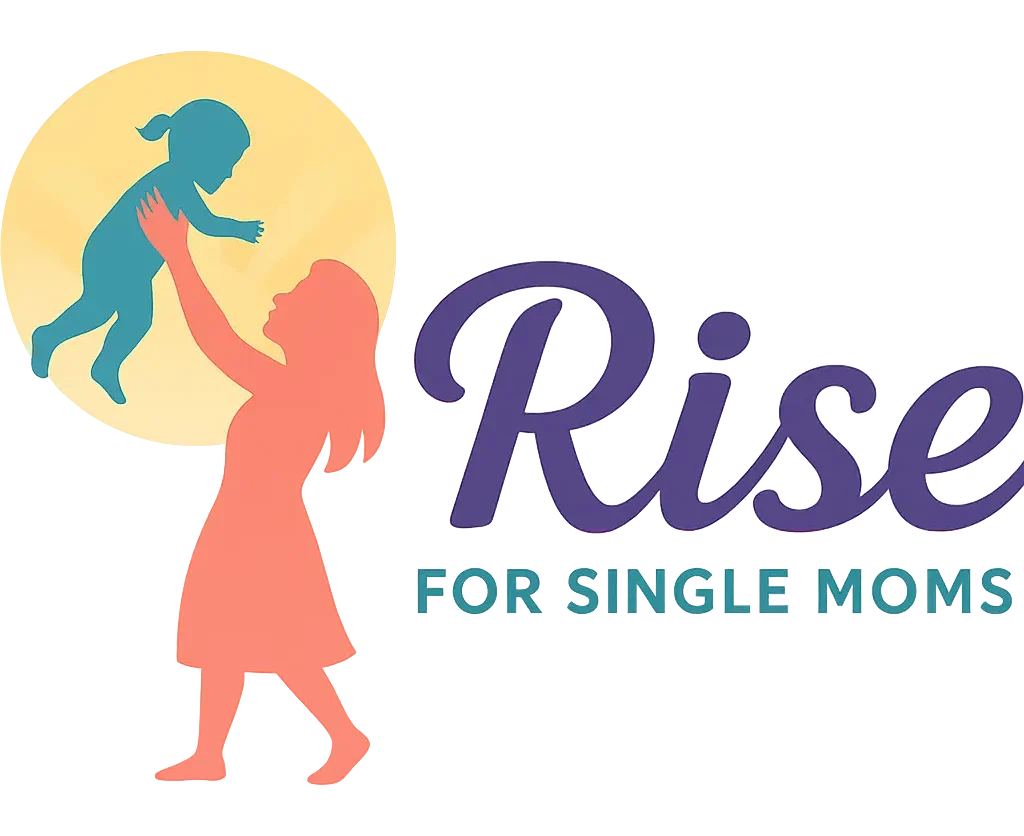A Single Mom’s Guide to Housing Assistance Programs
If you’re a single mom trying to hold it all together while the roof over your head feels uncertain, I want you to know—you’re not alone. I’ve been there. That fear, that tightness in your chest when the rent is due and there’s not enough? I carried that weight too. But there are real programs, real help, and real hope. And I’m here to walk you through it.

Why this matters: Because safe housing isn’t a luxury—it’s a necessity.
Without stable housing, everything else becomes harder—your job, your child’s education, your peace of mind. I wrote this guide because I don’t want you spending one more night scrolling the internet in tears. I want you to have clear, comforting answers.
In this guide, I’ll break down:
- National housing programs for single moms
- State-wise/local rent and housing assistance
- Who qualifies (eligibility)
- How to apply (with helpful tips)
- And a story of one mom who turned her situation around
Let’s get you the help you deserve.
National Housing Assistance Programs for Single Moms
These programs are available across the U.S., offering rent relief, public housing, and long-term support:
1. HUD’s Housing Choice Voucher Program (Section 8)
- What it is: Provides a voucher to help you pay rent in privately-owned homes or apartments.
- Who qualifies: Income must be below 50% of the median income in your area.
- How to apply: Visit your local Public Housing Agency (PHA) → Find Your PHA
- Wait time: Often long. Apply ASAP and ask about priority for families with children.
Application Process:
- Find Your Local Public Housing Agency (PHA):
- You must apply through your local PHA. To find your PHA, visit the HUD website or search for “Public Housing Agency” in your area.
- Complete the Application:
- Once you’ve located your PHA, fill out an application. This may be done online, in-person, or by mail, depending on the PHA’s processes.
- Submit Required Documents:
- Along with the application, you’ll need to provide various documents (see the list below).
- Wait for Approval:
- Due to limited funding, many PHAs have long waiting lists. Once your application is submitted, you’ll be placed on a waiting list, and you’ll be notified when you are selected for assistance.
- Voucher Issuance:
- If you’re approved, you will receive a voucher that allows you to rent housing in the private market.
Documents Needed:
- Photo ID (for all adult household members)
- Social Security Numbers for all household members
- Proof of Income (pay stubs, child support, unemployment benefits, etc.)
- Bank Statements
- Rental History (including references from previous landlords)
- Proof of Citizenship or Legal Residency (birth certificate, passport, or immigration documents)
2. Public Housing

- What it is: Government-owned housing with reduced rent for low-income families.
- Eligibility: Varies by location, but generally based on income and family size.
- Apply through: Local PHA or housing authority.
Application Process:
- Locate the PHA:
- Just like Section 8, apply through your local PHA. Use the PHA locator tool on HUD’s website to find local offices.
- Fill Out the Application:
- You’ll be asked to provide your personal information, including household income, family composition, and other relevant details.
- Provide Documents:
- Submit the necessary documentation (detailed below) with your application.
- Wait for a Decision:
- Public housing programs often have waiting lists, so it may take some time before you are contacted about availability.
- Move-In:
- Once approved and a unit is available, you’ll sign a lease and move into the public housing unit.
Documents Needed:
- Government-issued ID
- Social Security Number or Alien Registration Number (for all household members)
- Income Verification (pay stubs, tax returns, unemployment benefits, child support, etc.)
- Proof of Assets (bank account statements, etc.)
- Proof of Residency (utility bills, lease agreement, etc.)
- Family Composition Information (birth certificates, medical records, etc.)
3. Emergency Rental Assistance (ERA)
- What it is: Federal funds sent to local agencies to cover up to 18 months of back rent, future rent, and utilities.
- Eligibility:
- Must have experienced financial hardship (e.g., job loss, reduced hours)
- Risk of homelessness or housing instability
- Apply at: ConsumerFinance.gov Rental Help
State-Wise and Local Housing Programs

Here’s a breakdown of housing help available in each state, plus where and how to apply. I’m including only trusted and active programs designed for low-income families and single parents.
💡 Pro Tip: Start with your state’s Department of Housing or Human Services. They often connect you to local nonprofits too.
California
- Program: CalWORKs Housing Support
- Eligibility: CalWORKs participants who are homeless or at risk
- Apply: Through your local county welfare office → Find Here
- Also check: Housing Is Key for rental relief
Texas
- Program: Texas Rent Relief Program
- Eligibility: Income under 80% AMI; risk of eviction or homelessness
- Apply: texasrentrelief.com
Florida
- Program: OUR Florida (Emergency Rental Assistance)
- Apply through: ourflorida.com
- Local Help: Contact your county housing department for Section 8 waitlists
New York
- Program: Emergency Rental Assistance Program (ERAP)
- Apply at: otda.ny.gov
- Also check: NYC Housing Connect → affordable housing lotteries
Illinois
- Program: Illinois Rental Assistance Program
- Apply via: Illinois Housing Development Authority → ihda.org
- Local Support: Salvation Army, Catholic Charities
Georgia
- Program: Georgia Rental Assistance
- Eligibility: Must demonstrate hardship due to COVID-19 or income loss
- Apply: georgiarentalassistance.ga.gov
North Carolina
- Program: HOPE Program
- Eligibility: Income-based, experiencing housing instability
- Apply: rebuild.nc.gov
Ohio
- Program: Home Relief Grant
- Apply through: Local Community Action Agencies → Search here
- Includes: Rent, utilities, mortgage help
Arizona
- Program: Arizona Rental Assistance Program
- Apply: era.azdes.gov
- Eligibility: Must show financial hardship and housing risk
All Other States
If your state isn’t listed above, visit this federal site to find local rent assistance programs by zip code:
👉 NLIHC’s Rent Relief Map
Eligibility: Can You Qualify for Rent Help?

Here are the general criteria for most programs:
- Low-income status (usually below 50–80% of Area Median Income)
- U.S. citizenship or legal resident status
- At least one dependent child in your care
- Risk of homelessness or currently homeless
- Financial hardship (e.g., job loss, medical bills, domestic violence)
Each program will have its own income limits and paperwork, so always check the fine print locally.
How to Apply (And What to Expect)
General Steps for State and Local Housing Assistance Programs:
- Find Your Local Housing Assistance Programs:
- Many states provide rental assistance and eviction prevention through their Department of Housing and Urban Development (HUD) or similar state agencies. Use the HUD State Resources page to find your state’s resources.
- Check Eligibility:
- Most state and local programs are income-based, and some have additional criteria based on specific demographics, such as single mothers.
- Submit Application and Required Documents:
- As with the federal programs, you will need to provide personal and financial documents.
- Wait for Approval and Notification:
- Your local agency will review your application and determine whether you qualify for assistance. Waiting lists may apply.
Documents Typically Required for State and Local Programs:
- Proof of Identity (e.g., driver’s license or passport)
- Social Security Numbers for all household members
- Proof of Income (pay stubs, unemployment benefits, social security benefits, child support, etc.)
- Bank Statements
- Proof of Residence (lease agreements, utility bills, etc.)
- Birth Certificates (for dependents)
- Medical or Disability Documentation (if applicable)
Tips for a Successful Application:
Seek Help if Needed: If you’re unsure about the process, many local nonprofits (e.g., Catholic Charities, Salvation Army) can assist with the application.
Apply Early: Waiting lists for housing assistance can be long, so apply as soon as you are eligible.
Ensure Accuracy: Double-check your application and documents to avoid delays.
Follow Up: If you haven’t heard back in a few weeks, follow up with the relevant agency.
A Real Story: How Emily Found a Way Out
Emily was 29, newly separated, with two toddlers and a $400 eviction notice taped to her door. She’d applied to over 20 jobs and hadn’t had a full night’s sleep in weeks. Through her church, she found out about her state’s Emergency Rental Assistance Program. I remember sitting with her in the waiting room, holding her baby while she handed in her paperwork.
Three weeks later, she called me in tears—they paid her rent in full for three months, bought her time to start a part-time remote job, and even helped cover utilities. Emily’s now volunteering at a shelter to help other moms.
If she hadn’t asked for help… she could’ve lost everything. But she didn’t. And neither will you.
What You Can Do Right Now

Let’s take this one step at a time. Here’s what I recommend:
- Apply to at least two programs today—local and state-based
- Call 2-1-1 and ask for rental help near you
- Gather your documents tonight—it’ll make everything easier
- Bookmark this page or save it—come back when you need guidance
If you need help filling out forms, many nonprofits like Catholic Charities, YWCA, or local Family Resource Centers offer support—for free.
Common Housing Assistance Scams (and How to Avoid Them)
1. “Guaranteed Approval” for a Fee
Red Flag: They promise you a Section 8 voucher, rental approval, or grant — but only if you pay upfront.
The Truth: No legitimate housing assistance program will ever ask you to pay to apply or “hold your spot.” Applications for Section 8, emergency rental aid, and government housing are always free.
✨ Real Tip: If someone is asking for money to process your housing application, it’s a scam. Walk away immediately.
2. Fake Websites Mimicking Government Portals
Red Flag: You Google “apply for Section 8” and land on a site that looks official — but it’s really a scam that collects your personal info.
The Truth: Many scam sites copy HUD or local housing authority websites and ask for sensitive info (like your SSN) to “pre-qualify” you. Always double-check that the URL ends in .gov for government sites.
✨ Real Tip: For official programs, start at https://www.hud.gov — and only trust links from there.
3. Craigslist or Facebook Rental Scams
Red Flag: A landlord offers a great place for cheap, asks for money via Cash App or wire transfer, and won’t meet you in person.
The Truth: Scammers copy real rental listings and post them as their own. Then they pressure desperate renters (often single moms) into sending deposits before even seeing the place. Once the money is sent, they vanish.
4. “Government Grant” Phone Calls or Emails
Red Flag: Someone calls or emails saying you’ve been awarded a government housing grant, but you need to pay a “processing fee.”
The Truth: The U.S. government does not randomly award housing grants, especially not over the phone or through unsolicited emails. These are usually phishing scams meant to steal your identity or money.
Real Tip: Hang up, block the number, and never give personal info to an unsolicited caller.
5. Fake Nonprofits or Charities
Red Flag: A group claims to be a housing charity helping single moms but has no real contact info, reviews, or history.
The Truth: While many amazing nonprofits do exist, scammers create fake “charities” that sound real but are designed to collect donations or personal info.
✨ Real Tip: Always check a nonprofit’s credibility at https://www.charitynavigator.org or verify it’s listed as a 501(c)(3).
You’re Not Alone, Mama. You’ve Got This.
I don’t know your whole story yet, but I know you’re brave. Just by searching for answers, you’re already fighting for your family. And I see that strength in you.
Frequently Asked Questions (FAQ)
There are several grants available specifically for single mothers. Some of the most helpful ones include:
- Temporary Assistance for Needy Families (TANF): Provides cash assistance for low-income families.
- Women, Infants, and Children (WIC): A program to support pregnant women and mothers with children under 5 years old.
- Head Start: Offers early childhood education and other family support services for low-income families.
Additionally, check with local nonprofits and state programs to find more opportunities specific to your area.
The application process for financial assistance typically involves the following steps:
- Research available programs and check eligibility requirements.
- Gather necessary documents such as proof of income, residency, and family size.
- Submit your application either online or through your local government office.
Make sure to follow up regularly to check on the status of your application.
Yes! There are many free resources designed to help single mothers with parenting:
- Parenting classes: Many local organizations offer free classes or workshops for single parents.
- Support groups: Both in-person and online support groups can provide valuable emotional support and parenting advice.
- Local charities: Many charities offer parenting assistance and resources for single mothers.
These resources can help you feel more supported as you navigate the challenges of single parenthood.
Balancing work and parenting as a single mom requires finding the right strategies that work for you:
- Time management: Set a schedule that prioritizes your most important tasks.
- Delegate tasks: Don’t be afraid to ask for help from family or friends when needed.
- Self-care: Make sure to schedule time for yourself to recharge.
By staying organized and asking for support when needed, you can successfully manage both your work and parenting responsibilities.
Managing your finances effectively can be challenging, but here are some helpful tips:
- Set a budget: Track your income and expenses to help you manage your money better.
- Save for emergencies: Set aside a small amount each month for unexpected expenses.
- Seek financial counseling: Many nonprofits offer free or low-cost financial advice for single moms.
Taking small, consistent steps towards better money management can make a big difference in your financial future.
Yes! There are programs that can assist with child care costs:
- Child Care and Development Fund (CCDF): Helps low-income families with child care costs.
- State-specific child care subsidies: Some states have programs that provide child care assistance for working parents.
Check with local child care providers or state agencies to see what options are available in your area.
Saving money can be difficult, but these strategies can help:
- Shop smart: Look for discounts, buy in bulk, and use coupons.
- Set savings goals: Start small and gradually build up your savings over time.
- Reduce unnecessary expenses: Cut back on non-essential items to free up more money for savings.
Even small savings can add up over time, helping you build a stronger financial foundation for your family.
Staying motivated is important for reaching your financial goals. Here are a few tips:
- Set clear goals: Break down your long-term goals into smaller, achievable steps.
- Celebrate small wins: Reward yourself for reaching milestones, even if they’re small.
- Stay positive: Remind yourself of how far you’ve come and the progress you’re making.
Stay focused on your vision and remember that every step forward counts!
Yes, there are programs available to help single mothers with housing:
- Section 8 Housing: Offers rental assistance for low-income families.
- Public Housing Assistance: Local housing authorities may offer affordable housing options for eligible families.
Contact your local housing authority to learn more about eligibility and application procedures.
If you feel overwhelmed, take a deep breath and remember that you’re not alone. Here’s what you can do:
- Reach out for support: Whether it’s a family member, friend, or counselor, don’t hesitate to ask for help.
- Focus on small steps: Take one small action at a time to improve your situation.
- Stay positive: Keep reminding yourself of your strengths and resilience. You’ve already come so far!
Even small steps can help you regain control of your finances and feel more confident.







One Comment